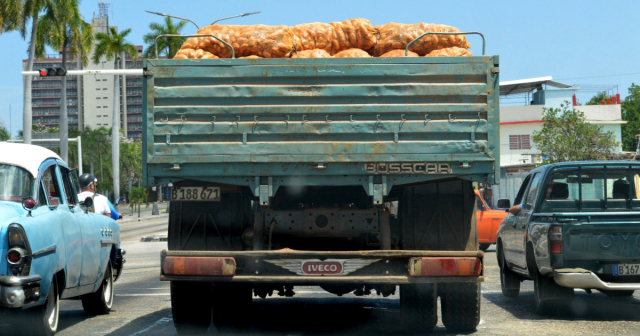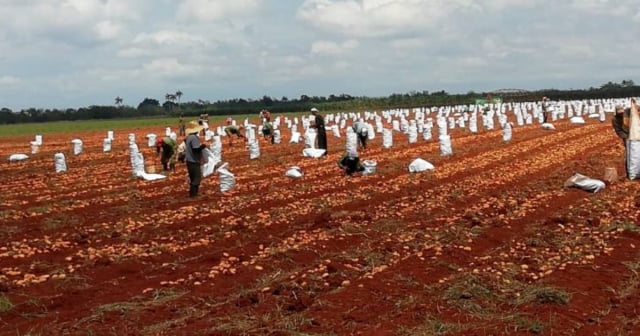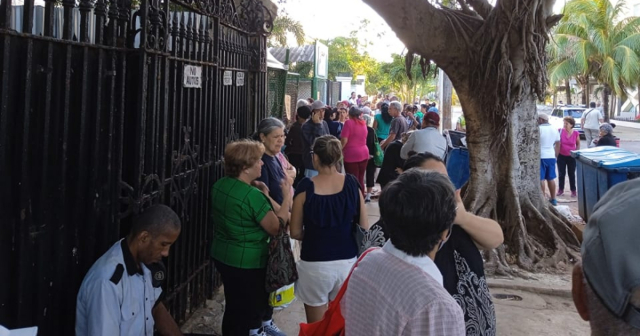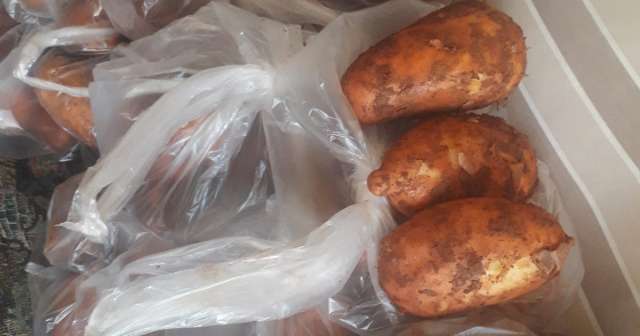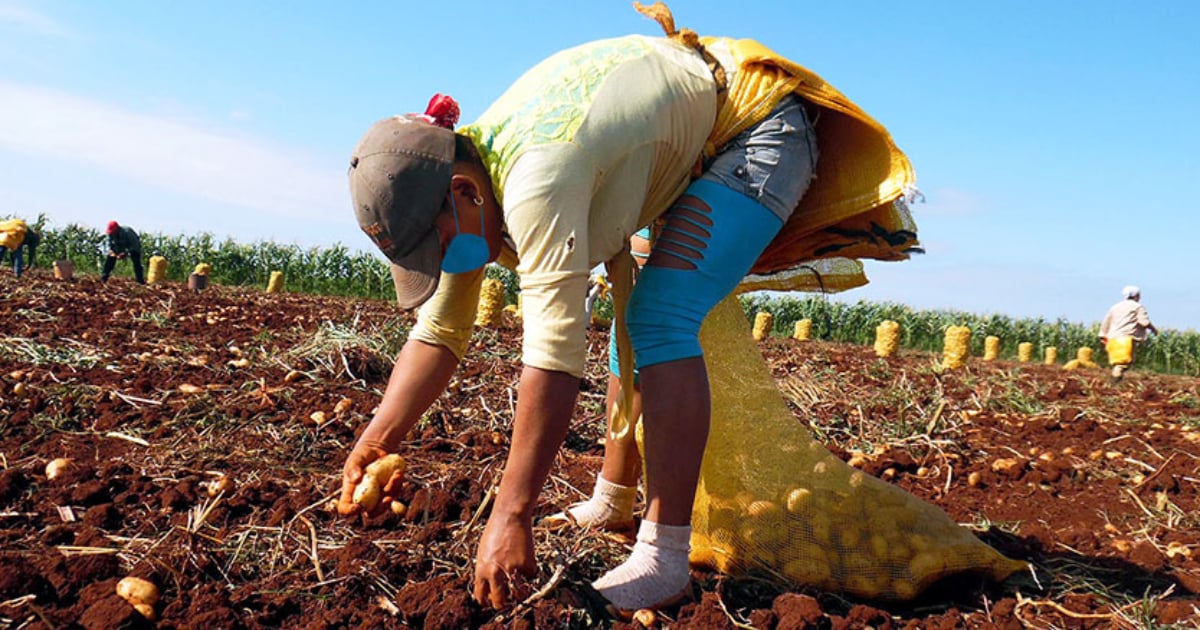
The potato planting season in Ciego de Ávila started with a scenario similar to previous campaigns, characterized by delays, a lack of resources, and unfavorable weather conditions.
At the Agropecuaria La Cuba Company, located in the municipality of Baraguá, only 13.42 hectares have been planted with nationally sourced seeds stored in refrigerated systems, which have faced interruptions due to the instability of the electrical supply and the scarcity of essential resources, reported the official newspaper Invasor.
Raúl Monguía Rodríguez, a specialist in tropical root crops at the Provincial Agriculture Delegation, explained that the goal of the campaign is to plant a total of 700 hectares in the province to achieve a harvest of approximately 14,000 tons of potatoes.
However, these goals are far from being assured, as delays in the arrival of key supplies, such as diesel needed to prepare the land, and excessive moisture in the soils have complicated the task for farmers, who are also facing uncontrolled weed growth that slows down the process.
However, the situation is not new. Despite efforts to sustain production, working conditions remain challenging.
The preparation of the land, which should have taken place in August and September, was significantly delayed, forcing producers to work under pressure, the news portal reported.
Although fertilizer is available for part of the campaign, logistical difficulties continue to affect the adherence to quality standards in seed selection.
Part of the production will rely on foreign potato varieties, which are considered high-yield, and will be harvested starting in February. These are intended to supply the pre-fried potato line of the Ceballos Agroindustrial Company, in addition to meeting social consumption needs, tourism, and the general population.
It is also planned to preserve seeds over 100 hectares to ensure an increase of 1,400 tons in the upcoming season, an ambitious goal amidst numerous challenges.
Agricultural companies such as Arnaldo Ramírez, La Cuba, and cooperatives like Paquito González and Revolución de Octubre are participating in the campaign, but structural challenges remain.
The recurrence of the same problems year after year raises doubts about the ability of the state agricultural system to overcome challenges, impacting both production targets and the stability of a key sector for the population's food supply.
The uncertainty surrounding whether these forecasts can be realized raises questions about the future of one of the most important agricultural productions in Ciego de Ávila.
Meanwhile, farmers continue to face obstacles that seem unchanging over time, leaving the population waiting for solutions that have yet to arrive.
However, the issue of potato planting is a national concern and affects all campaigns.
At the beginning of the year, production in Cuba was lower than expected due to power outages that have affected irrigation, as acknowledged by Miguel Sánchez García, general director of the Agroforestry Business Group (GEAF), in statements to the state-run newspaper El Artemiseño.
The 280 hectares planted in Güira de Melena, San Antonio de los Baños, and Alquízar could not be irrigated properly due to power outages caused by fuel shortages, the executive confirmed.
The scarcity of the product often causes long lines, such as the one that hundreds of people formed for hours in April at an agromarket in Vedado, Havana, to buy potatoes in a rationed manner.
In 2023, due to "high levels of rot," potatoes were sold in Cuban state markets, as acknowledged by José Luis Valladares Santana, the deputy delegate of Agriculture in Villa Clara, to the official broadcaster CMHW.
Valladares acknowledged that the potatoes offered by the Acopio Company at the State Agricultural Market in Buen Viaje and the José Martí neighborhood showed significant deterioration, reflecting the sector's difficulties in ensuring products in good condition.
Frequently Asked Questions about the Potato Production Crisis in Ciego de Ávila
What are the main challenges facing potato production in Ciego de Ávila?
Potato production in Ciego de Ávila is facing issues such as delays, lack of resources, and adverse weather conditions. These factors have complicated land preparation and the achievement of planting targets, affecting the stability of a key sector for the population's food supply.
How do electricity supply issues affect potato planting in Cuba?
The instability of the electricity supply has impacted the seed refrigeration system and irrigation of crops. This situation has been acknowledged as a significant barrier to agricultural production, exacerbating the already existing issues of resource scarcity and delays in land preparation.
What is the Cuban government's strategy to improve agricultural production?
The Cuban government has emphasized the need to move beyond an import-oriented mindset and encourage local production. However, recent decisions, such as the confiscation of land from farmers, reflect a more controlling approach rather than one that is truly supportive, raising doubts about its ability to achieve significant improvements in agricultural production.
What impact do government decisions have on farmers in Ciego de Ávila?
Government decisions, such as the withdrawal of land in usufruct, exacerbate the working conditions for farmers. This creates an atmosphere of uncertainty and demotivation, negatively impacting production and increasing pressure on small-scale farmers at a critical time for the agricultural sector.
What measures are being taken to ensure the supply of potatoes in Cuba?
The government plans to use high-yield foreign potato varieties to improve the harvest. These potatoes are intended to supply both the industry and social consumption, as well as the general population, highlighting the dependence on external inputs to meet production goals amidst current limitations.
Filed under:

